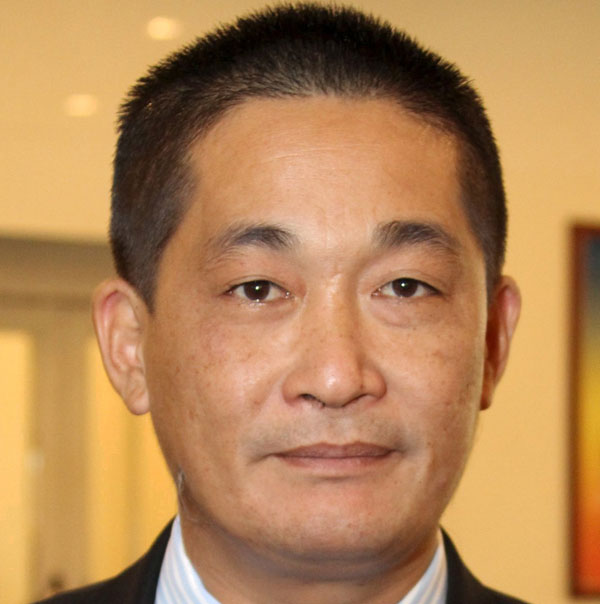
See Chee How
The amendment affects churches, temples and other charitable bodies, not mosques and Islamic welfare institutions
KUCHING: The amendment to Paragraph 13(1)(b) of Schedule 6 of the Income Tax Act 1967 will only affect churches, temples, and other religious charitable bodies.
Mosques and Islamic welfare institutions will not be affected because they are under the Majlis Islam Sarawak Ordinance 1984.
Churches, temples and other charitable organisations are under the Charitable Trusts Ordinance 1994.
According to Batu Lintang assemblyman See Chee How, Tabung Baitulmal Sarawak (TBS) was first established under Undang-Undang Zakat 1966 (a Federal Act) in 1966, and its name then was Tabung Zakat dan Fitrah Sarawak. It was later incorporated as TBS under the Majlis Islam Sarawak Ordinance 1984, and wholly owned by Sarawak Islamic Council.
“The Ordinance was re-enacted in 2001, and TBS was made a charitable trust institution in the Ordinance. It was therefore incorporated as a state agency, under the State legislatures.
“Being a state authority and the fact that its functions are governed by and pursuant to the national and state legislatures relating to Islamic religion, and religious principles, I believe their proceeds are tax exempted, under Section 44(6) of the Income Tax Act 1967 and Paragraph 13(1)(a) of Schedule 6.” See, who is also state PKR vice chairman, told The Borneo Post yesterday.
“The other religious charities, charitable trusts and institutions are not incorporated as a state body or agency, even though older ones may be established by Orders of government. These religious charitable bodies and institutions may seek to be incorporated under the State Charitable Trusts Ordinance and seek the assistance of the state government, or apply for exemption under Section 44(6) of the Income Tax Act,” See added.
Meanwhile, an experienced accountant, who preferred anonymity, also said TBS, as an Islamic welfare arm, was formed under the Majlis Islam Sarawak Ordinance, but not churches and temples.
He said before amendment to Paragraph 13(1)(b) of Schedule 6 of the Income Tax Act 1967, all types of income, including dividend, were tax exempted. After the proposed amendments, he said income that was not for charitable purpose would be taxable.
“I do not agree that all donations are not taxable income. Donations are a form of gifts or contributions received by religious institutions.
“If the donations are not for charitable purposes, then it will be taxable under the proposed amendments,” said the accountant, who also wondered if there was an omission of the Appendix in the tabling of the amendments. The accountant said every Finance Bill must contain an Explanation Statement detailing the intention of the proposed amendment.
“Whether all MPs have read it with understanding or not, I do not know. If yes, then there is no excuse for not objecting or seeking a clear explanation on it and to find out the tax implications.”
The accountant said this in response to a The Borneo Post Quick Chat column ‘Getting to know the new income tax rule with Wong Ching Yong’ published on Monday. Chartered accountant Wong held the view that “all donations were not taxable income”.
Meanwhile, Bandar Kuching MP Chong Chieng Jen acknowledged that the opposition did not object to the passing of the amendments in Parliament.
“Many Acts affected by the (2017) Budget will have to be amended so as to carry out the Budget. This included amendments to Income Tax Act 1967 and other Acts. That is to say, these amendments were consequential to the Budget,” said Chong.
“The opposition front objected to the Budget as a whole. Since we objected to the Budget, we also objected to all the amendments that followed.”
Chong, who is also state DAP chairman and Kota Sentosa assemblyman, said all these implications should have been highlighted during the Budget speech, but they were not.
“The government did it surreptitiously. The main intention, to me, is simple—to squeeze blood out of stone.”
Due to diverse views in interpreting the amendment to the Act and the confusions that followed, The Borneo Post contacted the Inland Revenue Board to shed light on the matter.
However, as at press time at 6 pm, there was no word from IRB even though its custom care officer, Masrun Maslim, had promised to give an official response.
Parliament passed the amendments last Nov 23, and the Senate followed suit on Dec 15.
Recently, a local charitable body was alarmed and raised strong objections to the passing of the amendment because religious institutions such as churches, temples and charitable bodies would need to pay tax on some of its income.
